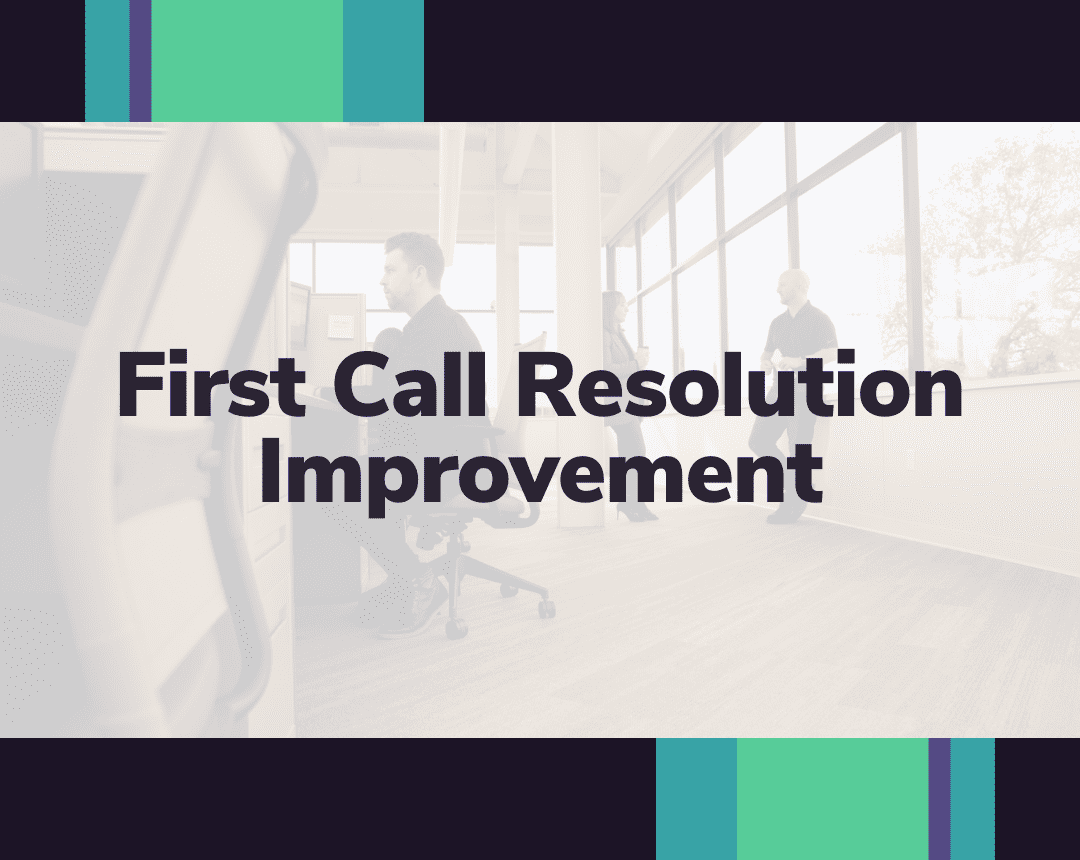The Challenge: A Frustrated Customer Experience
He’s excited because he can finally buy the items he’s wanted for months. Smiling, he hands the cashier the gift card his family gave him for his birthday and waits for the transaction to go through. And he waits. And waits. And before long, his smile gives way to frustration and then to anger.
It’s not the cashier’s fault. There’s some kind of glitch in the POS system, so he calls the help desk. After a couple of minutes of trying the standard solutions, the agent escalates the call. Now the cashier has to explain the situation all over again to someone new. Fortunately, it’s an easily recognizable problem that’s resolved in less than two minutes.
The customer’s still frustrated, but he made his purchase. Of the four other customers who were waiting in line, two tossed their planned purchases on nearby counters and left the store. The time to resolve the POS problem cost the store two big-dollar sales, and one of those customers posted a long, vulgar rant about the delay on their social media page. Fortunately it didn’t go viral.
The Importance of First Call Resolution Improvement
If the problem was easily recognizable, why couldn’t the first agent solve it? Netfor handles the first-tier call center for this global retailer, and a key measure of our performance is what’s known as First-Call Resolution (FCR).
As the name implies, it measures the number of calls on which the caller’s problem is handled to their satisfaction on the first try. We focus efforts for new clients on first call resolution improvement because it’s the strongest indicator of how happy users are with the service they receive from our team, and happier callers mean the retail chain is happy with us.
Insights and Data
We aggressively analyze FCR and the underlying data because we want to ensure our tactics for first call resolution improvement are succeeding with the highest level of service possible to our clients. As we examined the data more closely, we saw this particular issue had been escalated several times in the past month.
Each time, our agents could not fix the issue on their own, so they had to turn to the retailer’s team. In each case, that solved the problem, but it also meant extra time and frustrated store-level customers (not to mention the pain store employees have to endure when dealing with impatient customers, a contributor to staff turnover). Not only does that significantly impact the customer’s experience, but it also means extra work for the retailer’s internal folks, most of whom have other more important tasks in need of their attention.
Measuring First Call Resolution Improvement
Last November, our first call resolution rate for this retailer stood at just 63.9 percent, miles below our own expectations for our performance. As we analyzed the customer calls requiring escalation, we noticed many were for the same issues — problems easily resolved once the callers reached people with the right knowledge. If our agents had access to the same knowledge, those calls could have been handled immediately, furthering first call resolution improvement and reducing the delays and interruptions for the internal team.
The retailer agreed to commit staff time to help us discover what our agents needed to know. You see, the heart of our customer service approach is a knowledge base stored in articles. When a caller says their POS device is flashing a certain error code, our agents immediately access the knowledge article for that code and guide the caller through its resolution. The caller now thinks good thoughts about the store they just patronized, so they’re more likely to come back. That’s a win and our first call resolution improvement efforts are taking effect.
As we looked through the knowledge articles for this retailer, we recognized there weren’t any for some of the most common issues their callers faced. And as we analyzed the process step by step, we saw that some of the input for other articles had been created by technically proficient people who struggled to explain concepts in understandable ways.
For example, the resident expert used language that was familiar to the folks in IT but confusing to outsiders. So the retailer’s team committed resources that allowed their staff to work with us to:
- Find knowledge articles needing improvement
- Improve the quality of existing knowledge articles.
- Develop new articles to reduce the number of calls requiring escalation and enhance first call resolution improvement
Ongoing Improvements and Future Goals
Revamping the articles and creating new ones is an ongoing process, but by May, our FCR had climbed to 81.9 percent. There’s still a long way to go before we feel better about it, and as we keep working with the retailer to fine-tune the knowledge available to our agents, we expect that climb to continue.
That’s important because each first call resolution improvement means fewer store customers are frustrated by transaction delays. Instead of being less than competent, store employees appear to be intelligent problem-solvers. Want to talk morale?
The Impact of Enhanced Knowledge and FCR
We’re proud of the impact this effort has had on our performance, but frankly, we couldn’t have achieved this kind of first call resolution improvement without the retailer’s willingness to allocate resources to make our knowledge a strategic priority. The better our knowledge base, the less often our agents have to escalate. Put another way, when clients help Netfor’s team get smarter, our service gets even better.
As the retailer’s leadership notes:
“We were looking for an outsourced service desk partner that could provide reliable service for our retail operations. A key input to our decision-making process was a current customer who said retail stores did not even know they were calling another company for Tier 1 support. That is the satisfaction standard that we have held Netfor to, and they have delivered.
The single most important metric to accomplish this is first call resolution, and the Netfor team has partnered with us to relentlessly achieve our goals. We are pleased with our relationship with Netfor, and we look forward to how they can support our domestic and international retail locations into the future.”
Netfor’s team is constantly searching for ways to enhance the quality of our service. We appreciate our clients who recognize our knowledge’s direct impact on their employees’ and customers’ satisfaction. When we for FCR improvement together, everyone benefits — our team, our client, the client’s customer-facing employees, and their customers. Amazing what a little learning can accomplish, isn’t it?

